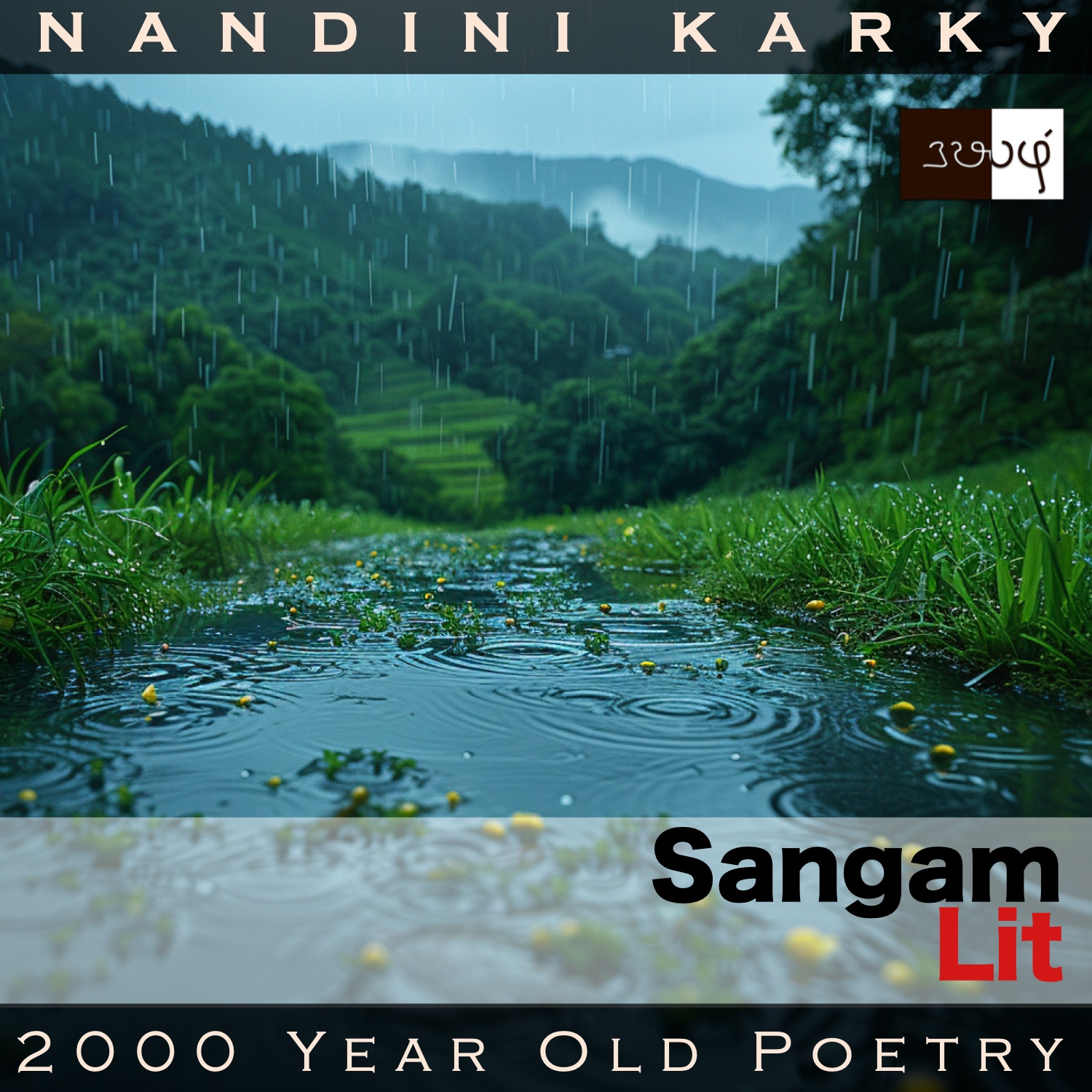Podcast: Play in new window | Download
Subscribe: Apple Podcasts | Spotify | Amazon Music | Android | iHeartRadio | TuneIn | RSS | More
In this episode, we learn of the compassion of a patron, as depicted in Sangam Literary work, Puranaanooru 385, penned about the local leader Ambar Kizhaan by the poet Kallaadanaar. Set in the category of ‘Paadaan Thinai’ or ‘Praise’, the verse delivers a heartfelt blessing.

வெள்ளி தோன்ற, புள்ளுக் குரல் இயம்ப,
புலரி விடியல் பகடு பல வாழ்த்தி,
தன் கடைத் தோன்றினும் இலனே; பிறன் கடை,
அகன்கண் தடாரிப் பாடு கேட்டருளி,
வறன் யான் நீங்கல் வேண்டி, என் அரை
நிலந்தினச் சிதைந்த சிதாஅர் களைந்து,
வெளியது உடீஇ, என் பசி களைந்தோனே;
காவிரி அணையும் தாழ் நீர்ப் படப்பை
நெல் விளை கழனி அம்பர் கிழவோன்,
நல் அருவந்தை, வாழியர்! புல்லிய
வேங்கட விறல் வரைப் பட்ட
ஓங்கல் வானத்து உறையினும் பலவே!
A crisp song in this series of lengthy praises! The poet’s words can be translated as follows:
“As the morning star appeared and songs of birds soared, in that dawn that ends the darkness, I was standing there, praising oxen. I stood not even at his gate. Even though I was standing at the gates of another, hearing the song of my wide-eyed thadari drum, graciously, wishing for my poverty to be done away with, he asked me to be rid of my half garment ruined by mud, gave me fresh and white clothes, and removed my hunger too. He is the leader of Ambar, the low-lying farmlands filled with lush paddy fields, upon which River Kaveri flows with gusto. He goes by the good name of ‘Aruvanthai’. May he live for days more than the rain drops that fall from the high skies on the ‘Venkata’ mountain ranges, ruled by Pulli.”
Let’s delve deeper into the verse. The poet starts by saying just when Venus was visible in the eastern sky, and birds started singing in their delicious voices, in the early hours of the morning, he was singing the praises of a rich man’s ploughing bulls. Just then, even though the poet was at someone else’s gates, this leader, hearing the poet’s song and drum beats, had called him over to his mansion, with grace and affection. Seeing the ruined state of his clothes, the leader gave him fresh, white clothes and food too, ending his poverty, declares the poet. He then goes on to describe the town Ambar, ruled by this leader, a rich farmland, made fertile by the great River Kaveri. He reveals the name of this leader to be ‘Aruvanthai’ and concludes by blessing him to have more days of life than the rain drops that fall on the ‘Venkatam’ hills, in the domain of Pulli.
We have heard this blessing before but what could be the significance of rain drops in Venkatam hills specifically? Researchers say that these hills refer to the contemporary Tirupathi hills in the state of Andhra Pradesh. This is not a place recognised for any significant rainfall in contemporary times. But, two thousand years ago, could this same place have had a different climate and could it have been the ‘Cherrapunjee’ of the ancient world? A question for climate researchers to ponder upon! This verse also vividly sketches the hospitality of ancient Tamils, which not only gave food to a supplicant but also new clothes. Incidentally, this tradition of giving clothes such as ‘veshti’ and ‘saree’, the South Indian attire for men and women, along with food, is followed even today in parts of Tamilnadu, if not for guests everyday, at least on special occasions. Thus, in subtle ways, we observe this continuity in the flow of culture across the ages!




Share your thoughts...